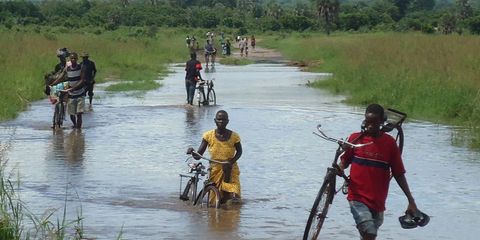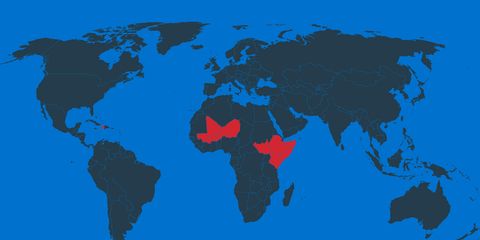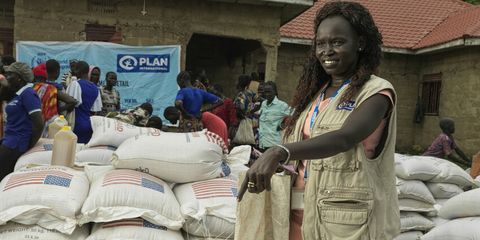G20 must not delay in addressing the hunger crisis
14 November 2022A severe hunger crisis is worsening by the day and girls are among those the most affected.
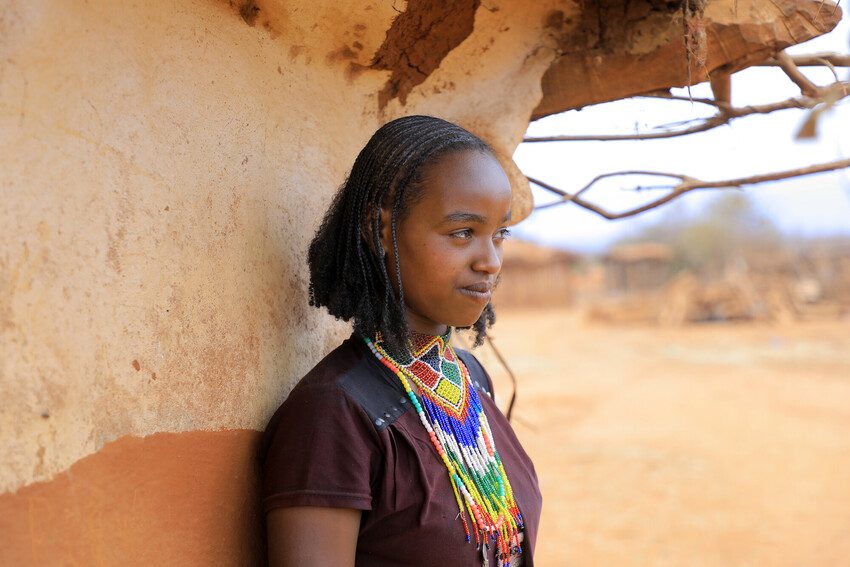
As world leaders prepare to gather at the G20 summit in Bali, Indonesia from November 15-16, a severe hunger crisis is worsening by the day and girls are among those the most affected. We, at Plan International are looking to G20 member states to recognise and address that the hunger crisis needs immediate attention and to make sure that these levels of food insecurity are never seen again.
In an open letter, we are urging G20 member states to ensure that all funding and efforts to respond to the hunger crisis today and prevent food insecurity in the future, will consider the needs of girls. Funds must be committed so that not another day is lost while hunger threatens millions. Right now almost 50 million people are on the brink of famine in 45 countries and are in need of urgent assistance.
The initial contributions from the international community in response to warnings over the past 20 months of the global hunger crisis have been a good start, yet effective action is delayed and remains heavily under-resourced.
Girls and women the most affected
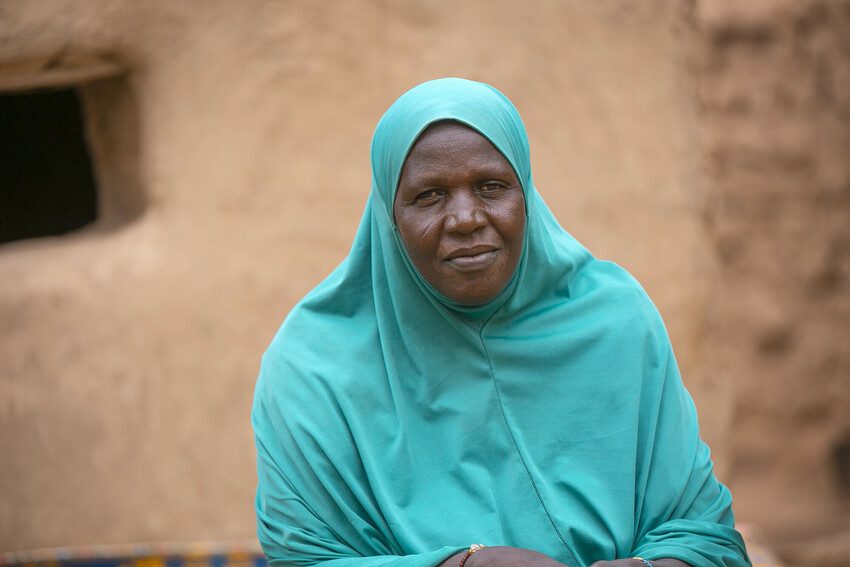
Sadou Midou is a widow who is bringing up her children alone in Tillabéri, Niger. She and her family are surviving on one meal a day and she often goes without food to ensure her children can eat. “Children cry when they are hungry. Adults can make do with what little they have, but children need food to satisfy them.”
Despite the challenges she faces, Sadou is determined that her younger children should stay in school – often children, especially girls, drop out during times of droughts and food shortages to help their families find food and water or to search for work.
Women and girls account for 70% of the world’s hungry, they are usually the ones most affected by food shortages, with girls often eating least and last. Not only do they have less access to food, but they are vulnerable to child labour, early and forced marriages and sexual exploitation.
Sadou is just one of the millions of people globally who is in urgent need of food assistance. Somalia, Ethiopia, northern Nigeria, Sudan, South Sudan, Haiti, Burkina Faso, Niger and Kenya are among those at highest risk of food insecurity.
The scale of this crisis is overwhelming, and requires urgent international support.
Communities are doing what they can to support each other. But the scale of this crisis is overwhelming, and requires urgent international support. A combination of multiple crises – including the conflict in Ukraine, the climate emergency and economic fallout of COVID-19 – means that famine is a very real threat for five million children, who are at risk of dying from severe wasting.
From South Sudan to Haiti, Plan International is present in many of the countries most affected by this global food crisis. We are scaling up programmes such as nutrition support, cash and voucher assistance, food distributions, child protection, school meal programmes and livelihoods support.
But we urgently need more funds, so that we can reach more children, especially girls and their families.
How to turn around the hunger crisis
For this reason, we have set out five key asks to the G20 member states. They are as follows:
- Releasing emergency funding immediately to save millions of lives. We havenot acted early and now face a worst-case scenario, with a $22.2 billion shortfall remaining if we are to prevent 50 million people from falling into famine and build resilience. Funds need to be gender-responsive, readily available and immediately provided on a “no regrets” basis to prevent massive loss of life. All donors must contribute their full and fair share now, without diverting resources from meeting other pressing humanitarian needs.
- Prioritising the specific needs of women and children, especially girls. This includes school feeding to help children and young people stay in school and protection programs to help address child rights violations such as child marriage. We call on you to ensure that all responses to food insecurity are gender, age and disability responsive.
- Increasing your efforts to address the underlying drivers of the hunger crisis, including conflict, economic shocks and climate change. We must see strengthened political leadership to prevent and end conflicts around the world, enhanced protection for girls and women from economic inequality and shocks, and support to countries experiencing hunger to adapt to and strengthen resilience to ongoing and future climate shocks and stresses, including through climate finance mechanisms.
- Strengthening resilience to anticipate, adapt to and transform in the face of shocks and stresses that contribute to food insecurity. This means increased international and domestic funding for anticipatory action, resilience, adaptation and early warning systems. We call on you to engage girls and youth and to ensure all efforts are gender-transformative, locally-led and child-centred.
- Ensuring accountability for your hunger crisis efforts, including through clearly and transparently reporting on your funding commitments and disbursements, supporting local partners, and consulting with affected populations, including young people, to shape your response.
We must act now to save lives and invest in a better present and future for girls and young women.
G20-Letter-on-the-Hunger-Crisis-Signed-by-G20-offices
326.38 kb
